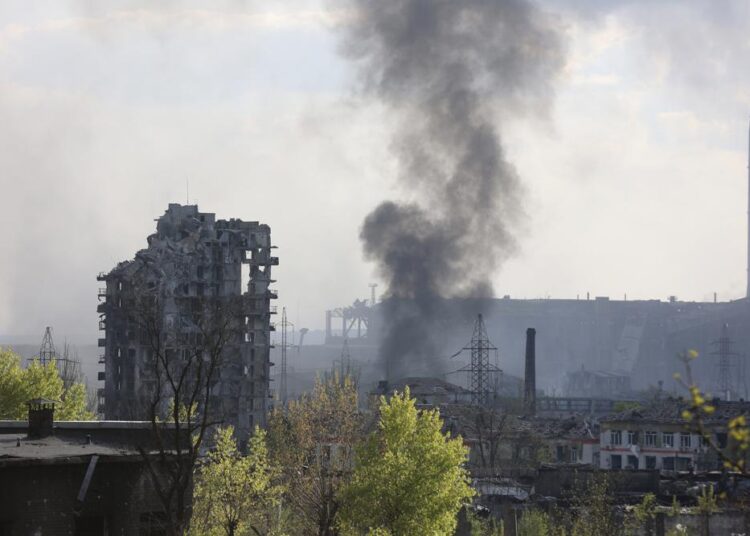GENEVA — With the evacuation of some civilians from a steel mill besieged by Russian forces in the port of Mariupol, attention is turning to the fate of hundreds of Ukrainian troops still inside after weeks in the plant’s warren of underground tunnels and bunkers, according to AP.
Counting both able-bodied and wounded among their ranks, their choice seems to be either fighting to the death or surrendering in hopes of being spared under the terms of international humanitarian law. But experts say the troops are unlikely to be afforded any easy exit and may have difficulty getting out as free men or even alive.
“They have the right to fight until they are dead, but if they surrender to Russia, they can be detained,” said Marco Sassoli, a professor of international law at the University of Geneva. “It’s simply their choice.”
Laurie Blank, a professor at Emory Law School in Atlanta who specialises in international humanitarian law and law of armed conflict, said injured fighters are considered “hors de combat” — literally “out of the fight” — and can be detained as prisoners of war.
“Russia could let the injured Ukrainian troops return to Ukrainian areas but is not required to,” she said.
The sprawling, seaside Azovstal mill is a key war objective for Russian forces as the last holdout of resistance in coastal southeastern Ukraine, after a grueling, obliterating siege of Mariupol.
The wives of at least two Ukrainian soldiers inside Azovstal have been in Rome pleading with the international community for an evacuation of the soldiers there, arguing they deserve the same rights as civilians.
Kateryna Prokopenko, whose husband, Denys Prokopenko, commands the Azov Regiment at the plant, told The Associated Press she went without word from him for more than 36 hours before finally hearing from him Wednesday.
He told her that Russian soldiers had entered Azovstal and “our soldiers are fighting, it is crazy and difficult to describe.”
“We don’t want them to die, they won’t surrender,” Kateryna Prokopenko said. “They are waiting for the bravest countries to evacuate them. We won’t let this tragedy happen after this long blockade.”
“We need to evacuate our men as well.”
Ukrainian authorities have also demanded that Russia offer the Azovstal soldiers a safe exit — with their arms.
But experts say it would be nearly unprecedented for them to be simply allowed to walk free, not least because they could take up arms again and possibly cause Russian casualties.
Yet the ICRC has not said whether it has met with any POWs in Russian custody since the war began Feb. 24, a silence that Sassoli said could be a “bad sign.”
Asked by AP whether ICRC has visited any war detainees, spokesman Jason Straziuso said briefly, “The issue of prisoners of war is extremely important and we are closely engaging with the parties to the conflict on the topic.” He declined to comment further.
On Tuesday, Pascal Hundt, the ICRC’s chief in Ukraine, told reporters that only civilians were covered in a Russian-Ukrainian deal that led to the recent evacuations from Azovstal. And he expressed uncertainty that anyone else might get out.
“The ICRC has little leverage when it comes to reaching a cease-fire agreement, and it is up to the parties to find agreement and to get these people out,” Hundt said. “We’ll continue to push even if the hope is close to zero, we’ll just continue to push — and we stand ready to go there.”






Discussion about this post